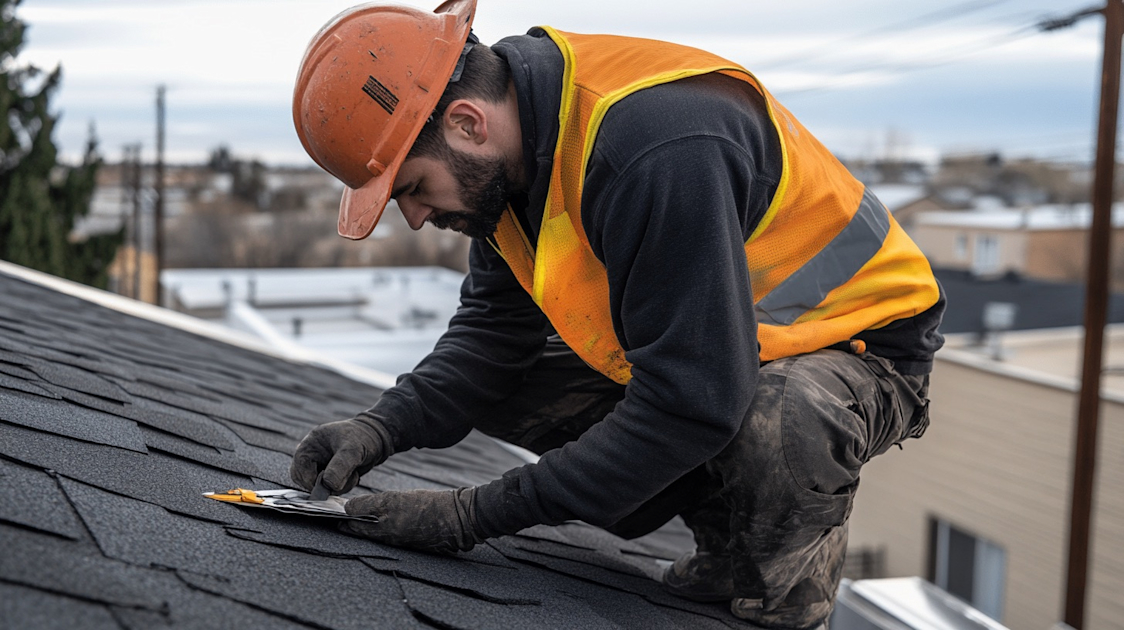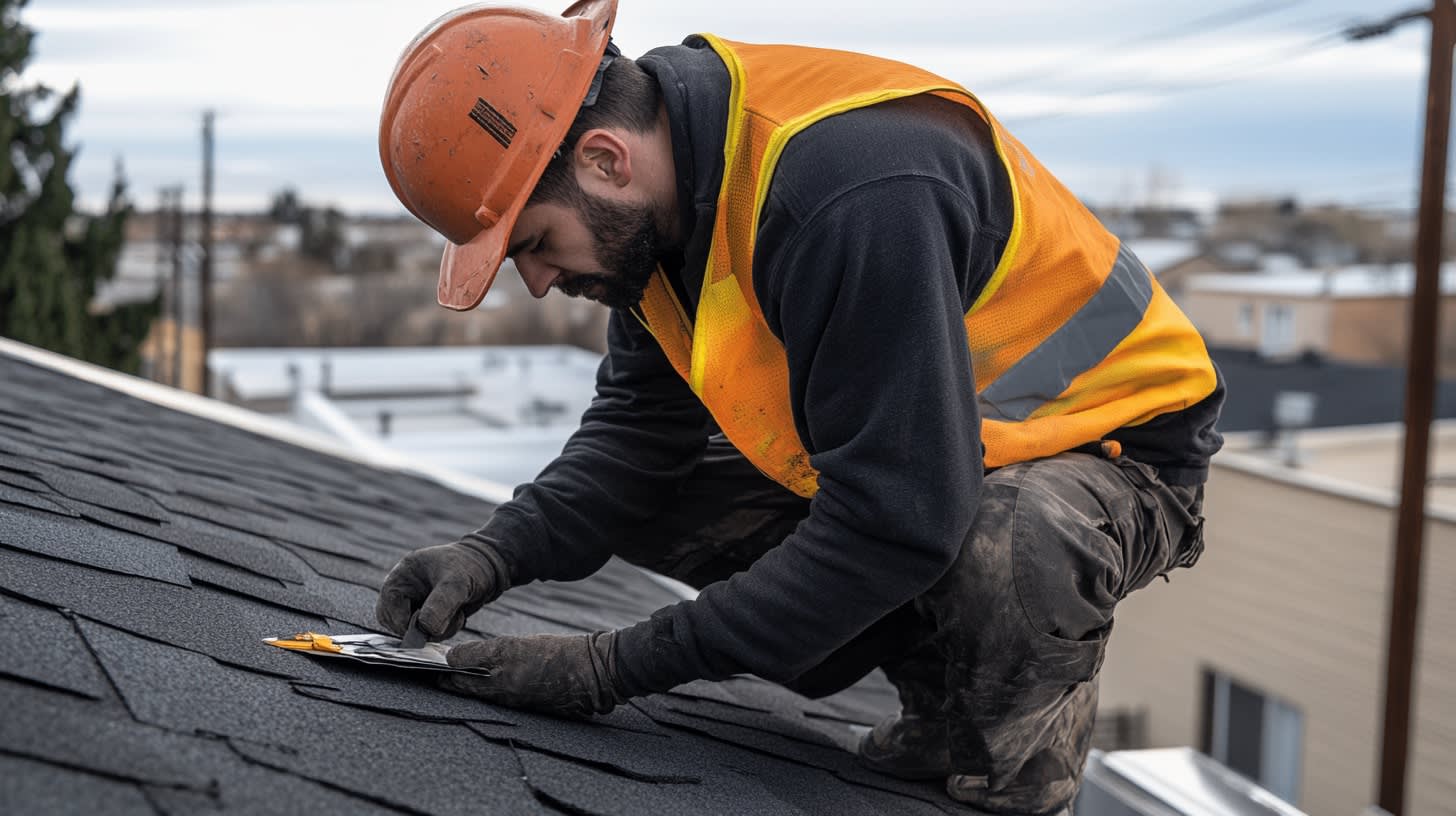Roofing is a significant investment in your property. Therefore, understanding all facets of it, including the roof warranty, is of utmost importance. A roof warranty ensures that the roof material or workmanship issues are backed by either the manufacturer or the roofing contractor, reducing your financial obligation.
What is a Roof Warranty?
Simply put, it’s a contract where a party (usually the manufacturer or contractor) offers remedies in case of a product or service failure. In the context of roofing, there are typically two types: a manufacturer’s warranty and a contractor’s warranty.
Manufacturer’s Warranty
This type of warranty covers the roofing materials. If any of the materials turn faulty or don't live up to their promises in terms of longevity, the manufacturer will replace them at no cost to you.
Contractor’s Warranty
This warranty is provided by the roofing contractor covering their workmanship quality. In case there are any installation faults leading to leaks or damage, the contractor will repair it for free under this warranty.
Key Elements to Look For in a Roof Warranty
Understanding what's covered in your roof warranty and what's not can save you from unwanted surprises down the line. So, here are some crucial components to look out in a roof warranty:
- Length of Coverage: Check the duration for which your roof is covered. Coverage may vary from a few years to a lifetime, depending on the type of the roof material and the manufacturer.
- Material vs. Workmanship Coverage: Ensure you understand what's covered under your warranty - if it's just the material defects, workmanship errors, or both.
- Transferability: If you plan to sell your property, a transferable roof warranty can be a significant selling point as it provides peace of mind to potential buyers.
- Prorated vs. No Dollar Limit: Some warranties decrease in value as your roof ages (Prorated), while others provide the full coverage repair cost regardless of the roof's age (No Dollar Limit).
- Required Maintenance: Some warranties may require you to do regular roof maintenance. Not doing so could nullify your coverage.
The Importance of a Roof Warranty
Let's understand why having a roof warranty is important:
- Brings Peace of Mind: Knowing that your roof is covered under warranty can give homeowners peace of mind.
- Saves Money: Roof repairs or replacements can be costly. A good warranty protects you from these expenses.
- Enhances Home Value: If you plan to sell your property, a transferable roof warranty adds to your home's appeal and can increase its market value.
Frequently Asked Questions about Roof Warranty
What is the standard duration of a roof warranty?
A typical roof warranty may offer coverage for anywhere between 10 to 50 years. The duration usually depends on the quality of the roofing materials used and the manufacturer. However, it's essential to note that different parts of the roof might have different warranty periods. Most warranties are transferable to the new homeowner if you sell your home.
Are all types of roofs covered under roof warranty?
Generally, most warranties cover all types of roofing systems, such as shingles, metal, slate, and tile, among others. However, the level and duration of coverage can vary significantly between different materials. Some materials may have more extended warranties because they're more durable.
Does a roof warranty cover weather damage?
A roof warranty usually doesn't cover damages due to weather, such as wind, hail, or a storm. These are normally covered under the homeowner's insurance policy. But, damage due to manufacturing product failure during a weather event should be covered.
Do I need to do anything to maintain my roof warranty?
Certain actions or inactions can void your roof warranty. Regular maintenance is necessary to keep your roof warranty valid. Failing to fix minor issues like small leaks could void your warranty. Also, remember that you should only have professional, certified roofers work on your roof, as some warranties could be voided if worked on by uncertified individuals.
Can I transfer my roof warranty to a new homebuyer?
Yes, most manufacturer and installer roof warranties are transferable at least once. There may be fees and paperwork involved in transferring the warranty. Make sure to discuss the terms of transfer with your roofing company.
Are there different types of roof warranties?
Yes, several types of warranties are available: a manufacturer's warranty covers the roofing materials while a workmanship or installation warranty covers the labor. A full system warranty covers both material and labor, but this is less common.
How can I make a roof warranty claim?
When you want to make a claim on your roof warranty, you should first contact your roofing company or the manufacturer of the roofing materials. They will guide you through the process, which typically involves providing documentation of the damage, proof of purchase and warranty, and possibly pictures as well.
Is everything on my roof covered by a roof warranty?
No, a roof warranty typically only covers materials supplied by the manufacturer. Other parts, like the flashing, underlayment, and attic vents, may not be covered. It is important to check the scope of your warranty before making a purchase.
What other things aren't covered by a roof warranty?
A roof warranty does not cover damages from acts of God, such as tornadoes, hurricanes, or earthquakes, among others. Damages caused by improper modifications or repairs, failure of associated parts not included in warranty, and changes in the building structure are also not covered.
What are the potential costs I might incur even with a roof warranty?
Even with a roof warranty, there may be some out-of-pocket costs you could incur. These include deductibles, service fees, costs for repairs or damages that aren't covered under warranty, and roof maintenance costs.
Is a roof warranty worth it?
Yes, a roof warranty can save you a significant amount of money in the event of material failure or improper installation. However, you must understand the terms and conditions, exclusions, and levels of coverage before making your decision.
Pros of a Roof Warranty
Building Insurance Covering Roof Warranty
A significant advantage of having a roof warranty is the possibility of insurance providers reducing premiums due to the warranty. With a roof warranty, insurance companies can attest to the roof's quality since reduced risks of damages is innevitable. This is beneficial to the owner as it parallels reduced insurance premiums.
Catalyses Roof Maintenance Intervals
Roof warranties can significantly affect how prone or not a homeowner is to regular roof maintenance. Often, this scenario can be related to scheduled visits to the dentist, which can be easily overlooked until an issue arises. Regular inspections are usually part of most roof warranties, which ensures small problems are detected and dealt with before escalating into problematic levels.
Comprehensive Coverage
The majority of roof warranties offer coverage that extends to various aspects of the roof. This could include the roofing material, workmanship, and manufacturer defects, to mention a few. This comprehensive coverage ensures that as a building owner, your investment is safeguarded against potential losses.
Cost Savings on Roof Repairs and Replacement
Roofing issues can result in costly repairs or replacements. With a roof warranty, homeowners have assurance that any problems with their roofing will be taken care of without affecting their pockets significantly. This serves as a financial cushion whenever unexpected roofing damages occur.
Provides Assurance of Quality Installation
A warranty often comes with an assurance from the roof installer that they have carried out quality work. It means they are willing to back their work over a period of years, and should there be any premature defects, they will rectify the problem at their own expense.
Cons of a Roof Warranty
Not All Damages are Covered
Although a roof warranty provides comprehensive coverage, it doesn't imply that all potential damages are covered. Most warranties won't cover damages from acts of God such as hurricanes, or damages due to the owner's negligence or lack of maintenance.
Limited Coverage After a Sale
In instances where you sell your home, the roof warranty may become void or not transferable to the new homeowner. This can pose challenges for the buyer if any issues arise with the roof after purchase. Always verify if your warranty is transferable.
Requires Regular Maintenance
Most roof warranties require periodic maintenance by professional roofing companies. If you fail to follow the maintenance schedules and guidelines provided, the warranty could become void. This means you may end up paying for repairs out of pocket even when you have a warranty.
Warranties Have Duration Limits
Most warranties come with a lifespan. Some may extend to a decade, while others go to two or more. This means after this period, any problems arising will not be covered. Duration limits can be a disadvantage if your roof installation has a lifespan much longer than your warranty period.
Dependence on the Stability of the Warranty Provider
If your warranty provider closes business or becomes insolvent, the warranty may be void. This is why it's important to research and choose roofing companies with a history of stability and good reputation.
Possibility of Increased Initial Costs
Some roofing companies may inflate initial installation costs due to the warranty. Here, the client might end up paying for the warranty indirectly. Always compare what different companies offer to ensure you're not paying unnecessary premiums for your roof warranty.
Prone to Misunderstandings and Misinterpretations
Not all homeowners fully understand the terms outlined in their roof warranty. This could lead to disagreements when a homeowner feels an issue should be covered when it isn't necessarily so. Always ensure you fully understand your warranty before agreeing to its terms.
Potential Loopholes
Like many contracts, warranties might contain loopholes that an installer or manufacturer could use to avoid responsibility. Always make sure to understand each provision in the contract and possibly seek legal counsel to guide you in reviewing the document.
Summary
Considering the points previously covered, it’s quite undeniable that a roof warranty can be a lifesaver. With unexpected roof repairs and replacement being quite costly, a solid roof warranty can shield homeowners from these expenses. It also provides a sense of security, as homeowners can rest easy knowing they're covered in case of unexpected roof damage. However, it's essential to read the fine print to understand the terms and limitations to avoid any costly surprises in the future.
Exploring further, a roof warranty doesn't only provide financial protection, but it also ensures quality workmanship and material use. It makes roof installers or manufacturers accountable, compelling them to adhere to the highest standards. It means homeowners can enjoy peace of mind not just financially, but also in terms of the quality and longevity of their roofs. But remember, it comes in different types, each offering different levels of protection, so it’s important for a homeowner to understand the differences.
Lastly, while a roof warranty offers undeniable benefits, homeowners should also play their part. Regular roof maintenance can go a long way in preventing severe damage that may not be covered by the warranty. Also, it's key to remember that the warranty is valid only as long as the company offering it is in business. Therefore, choose a reputable and long-standing company for roof installation and warranty to ensure continued support and assistance. Having a roof warranty is not just about the financial aspect, but also about securing peace of mind and ensuring the lasting durability of your home's roof.
About HouseIdea
HouseIdea, located in sunny Sacramento, CA, is your go-to destination for all things home remodeling and design. Our talented team is dedicated to bringing your home renovation dreams to life, whether you're looking at an entirely new kitchen, a bathroom refresh, or transforming your basement into a cozy, functional living space. HouseIdea understands your home is personal and unique, so we always bring a fresh perspective packed with innovative ideas to meet your individual needs. Our blend of professional expertise and a friendly, approachable vibe make house renovation a thrilling expedition, not a chore! Come and explore the endless possibilities with HouseIdea Sacramento!
Tags: guarantee, homeowner protection, roofing materials,



















